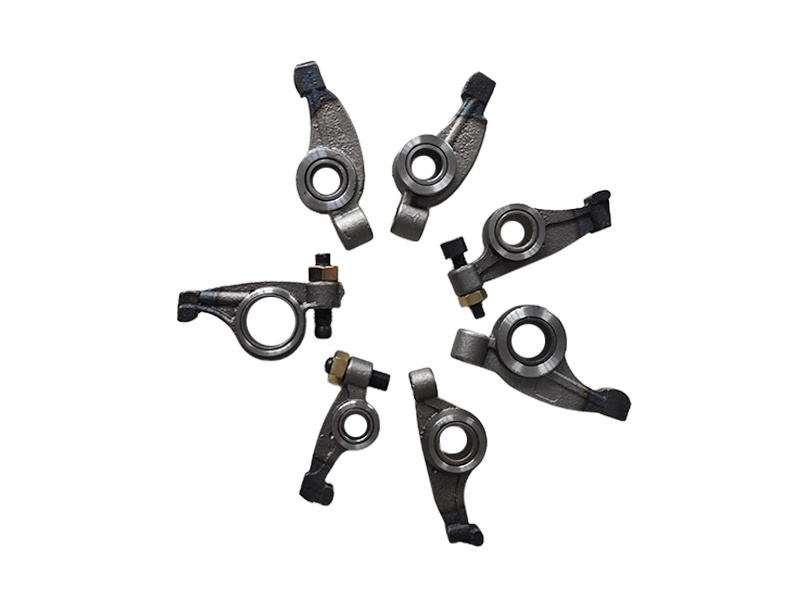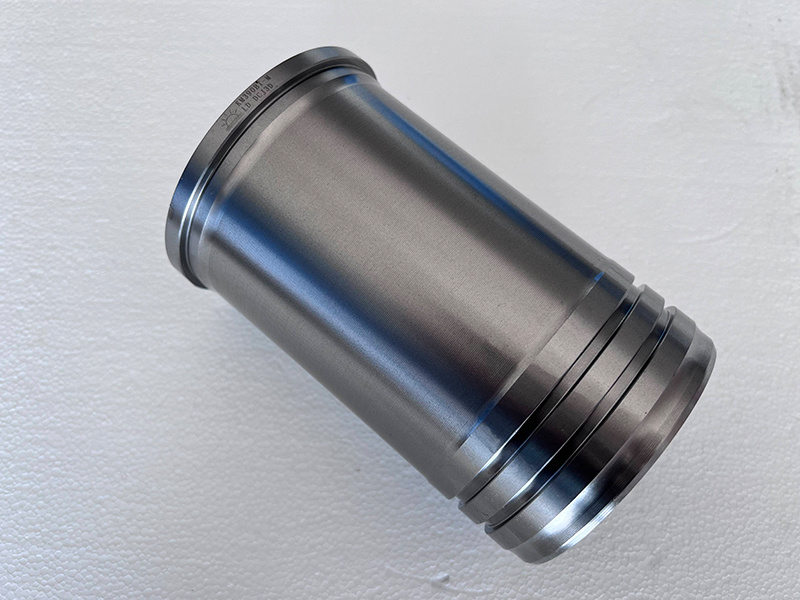Unlocking Efficiency: The Essential Role of Rocker Arm Adjusters in Agricultural Machinery
Aug 29,2025
Unlocking Efficiency: The Essential Role of Rocker Arm Adjusters in Agricultural Machinery
Table of Contents
Introduction to Rocker Arm Adjusters in Agriculture
What Are Rocker Arm Adjusters?
The Importance of Rocker Arm Adjusters in Agricultural Machinery
How Rocker Arm Adjusters Work
Benefits of Using Rocker Arm Adjusters in Farming Equipment
Choosing the Right Rocker Ar

Unlocking Efficiency: The Essential Role of Rocker Arm Adjusters in Agricultural Machinery
Table of Contents
- Introduction to Rocker Arm Adjusters in Agriculture
- What Are Rocker Arm Adjusters?
- The Importance of Rocker Arm Adjusters in Agricultural Machinery
- How Rocker Arm Adjusters Work
- Benefits of Using Rocker Arm Adjusters in Farming Equipment
- Choosing the Right Rocker Arm Adjuster for Your Machinery
- Maintenance Tips for Optimal Performance
- Future Trends in Agricultural Technology and Rocker Arm Adjusters
- Conclusion
- Frequently Asked Questions
Introduction to Rocker Arm Adjusters in Agriculture
Rocker arm adjusters play a pivotal role in agricultural machinery, significantly enhancing the efficiency and effectiveness of farming operations. These components are integral to the engine’s performance, ensuring that the machinery operates smoothly and reliably. As agricultural demands increase, understanding the mechanics and benefits of rocker arm adjusters becomes essential for farmers and equipment operators alike.
What Are Rocker Arm Adjusters?
Rocker arm adjusters are mechanical devices used in internal combustion engines, primarily in tractors and other farming machinery. They serve to modify the movement of the rocker arms, which are responsible for opening and closing the valves in the engine. By allowing precise adjustments, these components ensure that the timing and duration of the valve openings are optimized for various operating conditions, making them crucial for engine efficiency.
The Importance of Rocker Arm Adjusters in Agricultural Machinery
In the world of agriculture, efficiency translates to productivity and profitability. Rocker arm adjusters contribute to this efficiency in several ways:
1. **Enhanced Performance**: By ensuring that valves open and close at the precise moment, rocker arm adjusters help maximize the engine's power output. This results in better performance of tractors and other agricultural machinery, allowing them to handle heavy loads more effectively.
2. **Fuel Efficiency**: Properly adjusted rocker arms lead to optimal combustion processes. This translates into better fuel economy, which is a significant concern for farmers looking to reduce operational costs.
3. **Extended Engine Life**: When rocker arm adjusters are correctly calibrated, they prevent excessive wear on engine components. This can lead to a longer lifespan for the machinery, reducing the need for costly repairs or replacements.
4. **Adaptability**: Different agricultural tasks require varying engine performance. Rocker arm adjusters allow operators to fine-tune their machinery to meet specific demands, whether it be plowing, planting, or harvesting.
How Rocker Arm Adjusters Work
The operation of rocker arm adjusters is relatively straightforward but involves intricate mechanics. At the heart of the process is the rocker arm itself, which pivots on a shaft. When the engine runs, the camshaft rotates, pushing against the rocker arm, which in turn opens the engine's valves.
Rocker arm adjusters come into play by allowing adjustments to the distance that the rocker arm travels. This distance can be altered based on the wear of components, engine modifications, or desired performance criteria. The adjustment is typically achieved through a threaded mechanism, which can be easily manipulated using basic tools.
Benefits of Using Rocker Arm Adjusters in Farming Equipment
The advantages of integrating rocker arm adjusters into agricultural machinery are numerous:
1. **Improved Engine Responsiveness**: With better valve timing, farmers can experience quicker engine responses, especially in demanding situations like towing or lifting.
2. **Lower Emissions**: Efficient combustion leads to a reduction in harmful emissions, making compliance with environmental regulations easier.
3. **Cost Savings**: By enhancing fuel efficiency and prolonging engine life, rocker arm adjusters can lead to substantial cost savings over time.
4. **Increased Yield**: With optimized machinery performance, farmers can achieve higher yields, contributing to their overall success and sustainability.
Choosing the Right Rocker Arm Adjuster for Your Machinery
Selecting the appropriate rocker arm adjuster involves considering various factors:
1. **Compatibility**: Ensure that the adjuster is compatible with your specific engine model.
2. **Material Quality**: Look for adjusters made from durable materials that can withstand the rigors of agricultural use.
3. **Adjustment Range**: Different farming applications may require varying adjustment ranges; select one that meets your needs.
4. **Manufacturer Reputation**: Choose products from reputable manufacturers known for quality and reliability.
Maintenance Tips for Optimal Performance
To ensure that rocker arm adjusters continue to function effectively, regular maintenance is crucial:
1. **Routine Inspections**: Regularly check for wear and tear on the adjusters and associated components.
2. **Proper Lubrication**: Ensure that all moving parts are adequately lubricated to prevent friction and wear.
3. **Timely Adjustments**: Keep track of engine performance and make adjustments as needed to maintain optimal efficiency.
4. **Replace Worn Parts**: If you notice excessive play or poor performance, consider replacing the rocker arm adjusters to prevent further damage.
Future Trends in Agricultural Technology and Rocker Arm Adjusters
As technology advances, so do the components of agricultural machinery. Future trends may include:
1. **Smart Adjusters**: Incorporating sensors and AI technology to automate the adjustment process based on real-time engine data.
2. **Sustainability**: Developing rocker arm adjusters that are made from eco-friendly materials, contributing to a more sustainable agricultural industry.
3. **Integration with Satellite Technology**: Using GPS and satellite data to optimize machinery performance based on field conditions.
4. **Hybrid Systems**: Evolving designs that combine traditional mechanical systems with electric or hybrid systems for greater efficiency.
Conclusion
Rocker arm adjusters play a crucial role in the efficiency of agricultural machinery, impacting performance, fuel economy, and the longevity of engines. Understanding the mechanics and benefits of these components is essential for farmers looking to enhance their operations. As technology continues to evolve, the future of rocker arm adjusters promises greater advancements, ensuring that agricultural practices remain efficient and sustainable.
Frequently Asked Questions
1. What is the purpose of rocker arm adjusters in agricultural machinery?
Rocker arm adjusters allow for precise control of valve timing in engines, enhancing performance and efficiency in agricultural machinery.
2. How often should I adjust my rocker arm adjusters?
Adjustments should be made based on engine performance and regular maintenance checks, typically during routine service intervals.
3. What are the signs of a malfunctioning rocker arm adjuster?
Common signs include engine misfires, decreased performance, and unusual noises from the engine compartment.
4. Can I replace rocker arm adjusters myself?
If you have mechanical skills and tools, you can replace rocker arm adjusters. However, consulting a professional is recommended for optimal results.
5. How do rocker arm adjusters impact fuel efficiency?
By optimizing valve timing, rocker arm adjusters promote efficient combustion processes, leading to improved fuel economy in agricultural machinery.
TAG:
Recent News
Mastering Agricultural Machinery: A Deep Dive into Engine Speed Control Shaft Mechanics
Mastering Agricultural Machinery: Understanding Engine Speed Control Shaft
Table of Contents
1. Introduction to Engine Speed Control Shaft in Agricultural Machinery
2. Importance of Engine Speed Control Shaft in Agricultural Machinery
3. How Engine Speed Control Shaft Works
4. Types of Engine Speed Control Shafts
4.1. Mechanical Control Shafts
4.2. Electronic Control Shafts
5. Common Issues with E


